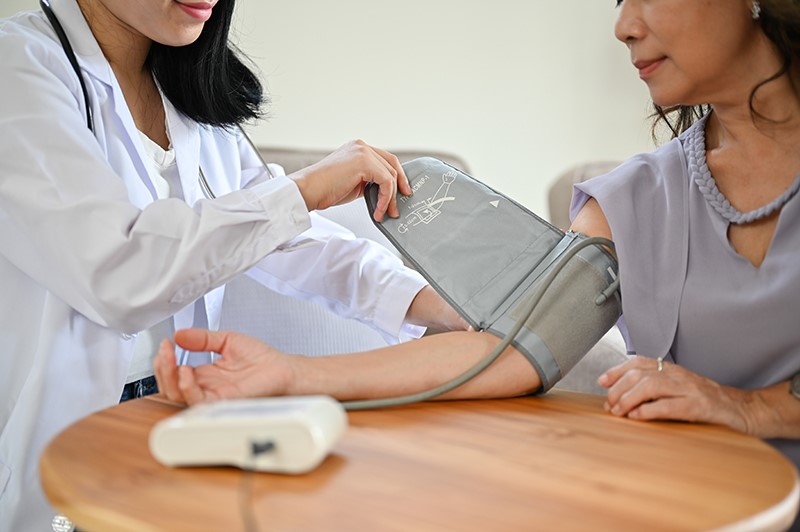The heart is an incredible organ that keeps the body running by pumping oxygenated blood through it. As humans age, their heart muscles naturally become weaker and more susceptible to heart attack, coronary heart disease and heart failure. Heart disease is one of the most common causes of disability in older adults and is the primary cause of death. But there’s good news, too! There are ways to treat heart disease (especially if it’s caught early). Here are some common signs of heart disease in older adults and available treatment options.

Symptoms That Warrant a Medical Consultation
Heart problems can happen at any age. Some people have genetic conditions that cause them to experience heart issues throughout life. But those over 70 should be particularly wary of any strange or unpleasant heart-related symptoms they develop. Here are some potential signs of heart disease to watch out for:
- Chest pain with physical activity
- Dizziness
- Headaches
- Cold sweats
- Swelling of the stomach, legs, ankles, feet or neck
- Shortness of breath when at rest, active or lying flat
- Difficulty doing everyday activities and reduced ability to be physically active
- Heart arrhythmias (feeling like your heart is skipping beats or beating unusually hard)
- Persistent wheezing or cough
Surprisingly, chest pain is one of the rare symptoms associated with heart disease in older adults. This means that you should be especially watchful for the other signs of heart disease mentioned in the list above. If you develop any of them, contact your healthcare provider and request a consultation. Depending on the type and severity of your symptoms, your doctor may refer you to a cardiologist.
How to Prevent Heart Disease
Keeping your heart healthy as you grow older is essential for reducing your likelihood of developing heart disease. Here are a few things you can do to boost your heart health well into your mature years.
- Stop smoking if you currently smoke
- Maintain a healthy weight
- Exercise regularly
- Keep high blood pressure, diabetes and other health conditions under control
- Eat a healthy diet that’s low in salt, saturated fats and added sugars
- Take steps to manage your stress
- Don’t drink much alcohol
These preventative measures will not only help you keep your heart healthy and strong but will also help you enjoy a higher quality of life. Elder Care Alliance also recommends checking your blood pressure regularly to ensure it’s in the healthy range. High blood pressure is one of the most common signs of heart disease. It’s often one of the earliest signs as well.
Treatment Options
If you are exhibiting symptoms of heart disease and are wondering what treatment options are available, you can take a variety of medications. They include:
- Beta-blockers
- Diuretics (water pills)
- Angiotensin-converting enzyme inhibitors
- Aldosterone antagonists
- Angiotensin II receptor blockers
These are just a few possible medications your doctor may prescribe to help. Your doctor may also recommend surgery to treat the underlying cause of your heart failure. To get life-saving treatment, notify your doctor immediately if you have any signs of heart disease.




















